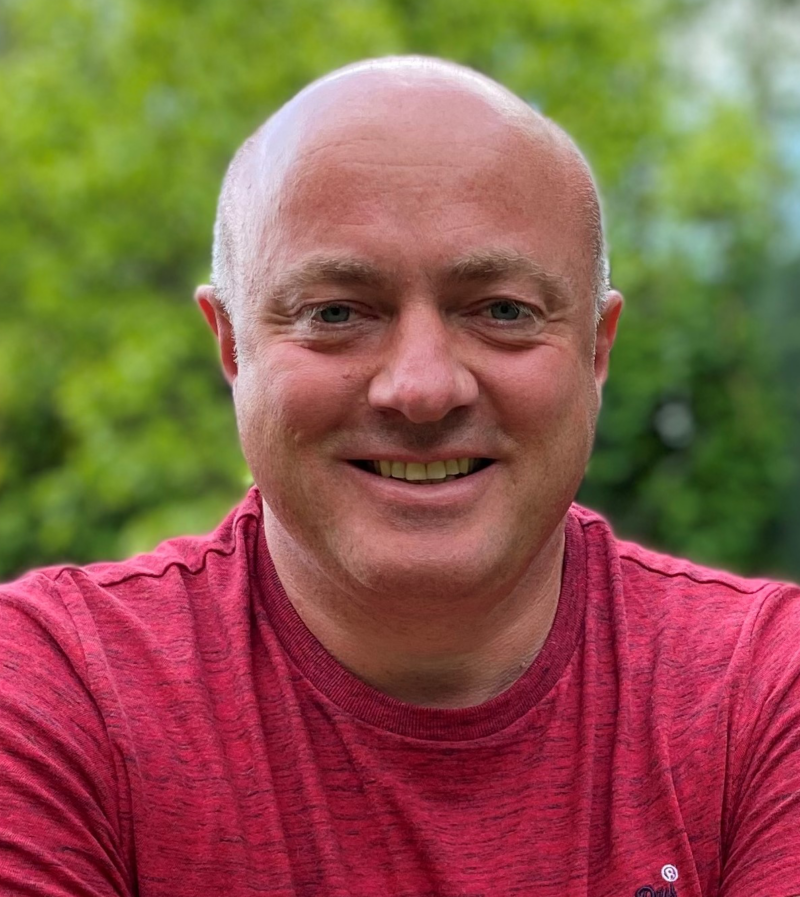Graham Wells is the founder of GroWiser. A member of the International Coaching Federation, he blends money mentoring and behavioural coaching to help individuals and couples in mid to later career to develop confidence with money and plan for financial freedom. In addition, Graham trains new financial coaches, carries out life planning with clients, and remains a chartered financial planner. Graham has completed the Financial Wellbeing Certificate from the Initiative for Financial Wellbeing. We enjoy his passion for helping clients to “develop financial knowledge, self-awareness and make bold, exciting plans for the future.”
Graham was recommended by Funmi Olufunwa, who says: “Graham is really lovely, kind and very knowledgeable. He’s given up regulated work to focus on coaching so he has a great story to tell.”
What’s your happiest memory?
I don’t have one particular happiest memory, but rather, a whole ‘smorgasbord’ of happy times at my favourite holiday destination in the far north west of Scotland. Many memories over the years, of family and friends in this one magical location.
I do have one significant memory of when my dad was in his final weeks in the fight against cancer. He was in hospital experiencing the rollercoaster of good days and bad days, when I turned up with bacon rolls and coffee before work one morning. I remember being amazed at how bright he was, because the previous day, we really thought he was in his final hours.
He was so pleased to see me and told all the nurses how proud he was of me. That’s not the sort of thing I remember hearing before, but that morning, he told stories of his life I had never heard and despite the circumstances, it was the most peaceful and open conversation you could imagine. It’s the one time it didn’t feel awkward for us to say that we loved each other. He went on to fight another few months after that, but everything felt ‘just right’. Maybe ‘happy’ is not the right word, but that morning with bacon rolls and coffee certainly improved by overall wellbeing.
What one thing do you wish you’d been told about finance when you were 15?
Nothing, because that might imply regret or blame and I don’t see much point in that. It probably wouldn’t have changed my behaviours anyway because I don’t think I listened much when I was 15. I’ve learned a lot, the hard way, from my lack of financial education as a kid.
What made you want to become a financial planner and coach?
As a regulated adviser, I never did get very excited about products, sales targets or revenue. The bigger picture of clients’ lives and businesses was always much more fascinating, yet I often saw unhappiness, regret and confusion in clients. Even those who were regarded to be successful due to their wealth or income.
In work, I found that colleagues nearly always responded better to a coaching approach, rather than micro-managing or directing. As I became more aware of the power of coaching, I put 2 and 2 together and realised that for the right clients, a combination of coaching and planning could be so much more powerful and rewarding. The coaching part needs constant self-development and reflection, but it’s extremely rewarding. For many clients, it helps provide the confidence and empowerment to develop their own financial strategy. There will always be need for full, regulated advice, for various reasons, but I’m enjoying this change of scenery for now.
What prompted you to join the Initiative for Financial Wellbeing?
When the IFW first started, it immediately struck me as being the only organisation that I knew of, that focused on the bigger picture of wellness and happiness, but in a financial context. Being a fan of the inancial Wellbeing Book and podcast, joining the IFW was an obvious step for me.
What drew you to financial wellbeing in the first place?
I think the realisation that our relationship with money is an enabler of life purpose, but only once we understand its connection with the other elements of wellbeing: career, social, community and physical. Financial wellbeing ties it all together.
What’s the biggest thing you’ve learnt about financial wellbeing since joining the IFW?
Biggest learn is that financial wellbeing, in itself, does not make you happier. It’s how financial wellbeing is used to support the other four areas of wellbeing, mentioned in my previous answer.
How has the way you work with clients changed since you joined?
Well, since joining, I have taken the decision to completely detach myself from product recommendations and providers. As a result, my work with clients focuses much more on their self-awareness, money behaviours and financial education. I can work with clients to the point of reaching financial stability and even a long-term strategic plan, but for specific solutions, it’s down to them, or I can help them find a suitable regulated adviser.
Who or what is your favourite (general) wellbeing guru, podcast or book?
I like Wellbeing: The Five Essential Elements by Tom Rath and Jim Harter. For me, it ties in nicely to Chris Budd’s Financial Wellbeing Book and podcast.
What are you doing to advance your own financial wellbeing?
My ‘Clear path to identifiable objectives’ needs a bit more work and imagination. Together with the challenges of building a new business, that’ll keep me occupied with thought for a while yet!

